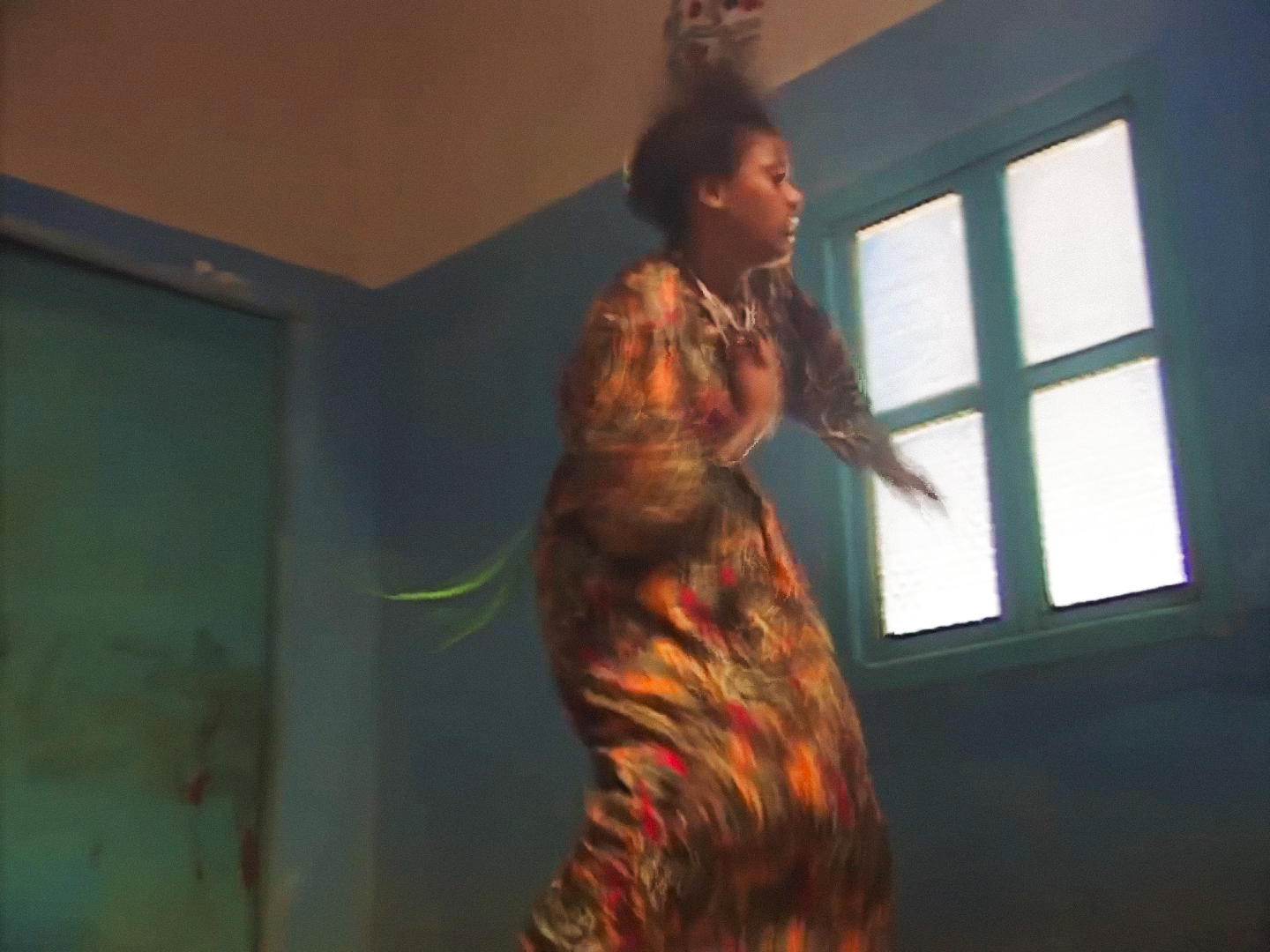05/05 — 31/07/2025
Nabil Aniss

20/06/2025, 06.30 PM
Inzywayates: Architecture of possession
20/06/2025, 06.30 PM
Events
This conversation, convening anthropologist Mériam Cheikh and socio-anthropologist Alessandra Turchetti, is situated within the public program Inziwayates—an initiative by artist Nabil Aniss developed during his fellowship at Scuola Piccola Zattere.
Inziwayates is a critical framework that interrogates the architectural, affective, and epistemic modalities of marginal spatialities. This encounter advances the program’s core inquiry by examining how ritual possession practices—particularly within Moroccan and Gnawa lila ceremonies—articulate forms of embodied knowledge and ritual competence that destabilize hegemonic epistemologies.
Drawing upon Cheikh’s ethnographic analyses of urban sex-working economies and the micropolitics of female gatherings in Moroccan cities, where she analyses possession as a competence and a socially consequential savoir-faire, the discussion will foreground how the act of being possessed is neither incidental nor exclusively pathological. Rather, it is a negotiated form of embodied expertise that indexes a subject's capacity to navigate, reconfigure, and contest prevailing social orders from within marginal and ambivalent spaces.
Turchetti’s work on Gnawa lila further situates this discussion within the ritual economies of trance, bodily excess, and sacred transmission, framing these nocturnal gatherings as insurgent counter-institutional practices. The lila, operating at the margins of both orthodox Islam and colonial modernity, becomes a performative site where bodies and knowledges excluded from dominant registers enact alternative forms of sociality and epistemic legitimacy. Here, possession emerges as a competence—a tactical engagement with the invisible—that enacts new ontologies of subjectivity and claims over space.
Possession, in this frame, constitutes an epistemic insurgency through which marginalized bodies enact agency via ritualized relations to the invisible. This conversation thus repositions possession as a performative and ontological capacity—one that produces social intelligibility, negotiates risk, and reclaims the margins as generative sites of counter-knowledge.
By foregrounding the notion of possession as competence, this dialogue also complicates conventional dichotomies between belief and performance, center and periphery, visibility and erasure. It posits possession not as a deviation but as a situated form of expertise, a negotiated performance of social and spiritual capital within the fragile ecologies of contemporary Moroccan urban and ritual life.
Free entry.
More info: [email protected]